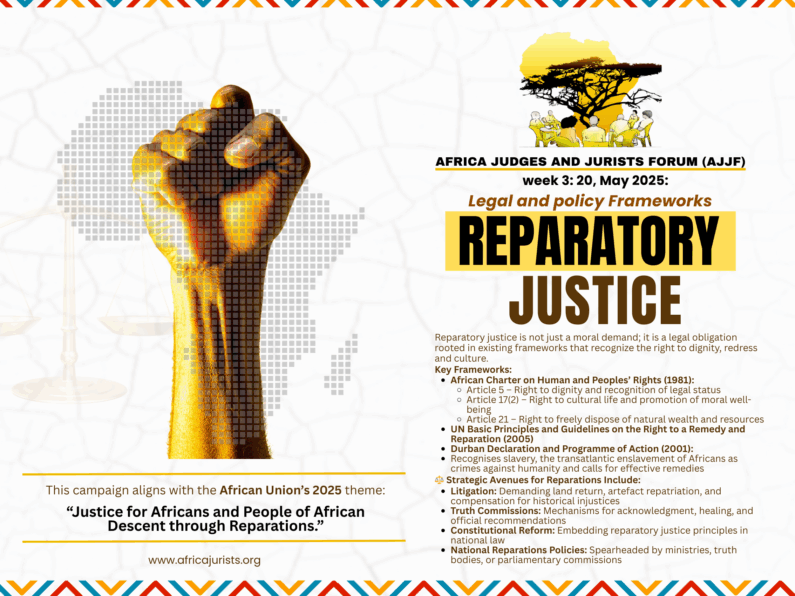Reparatory justice is not just a moral demand; it is a legal obligation rooted in existing frameworks that recognize the right to dignity, redress and culture.
Key Frameworks:
- African Charter on Human and Peoples’ Rights (1981):
- Article 5 – Right to dignity and recognition of legal status
- Article 17(2) – Right to cultural life and promotion of moral well-being
- Article 21 – Right to freely dispose of natural wealth and resources
- UN Basic Principles and Guidelines on the Right to a Remedy and Reparation (2005)
- Durban Declaration and Programme of Action (2001):
Recognises slavery, the transatlantic enslavement of Africans as crimes against humanity and calls for effective remedies
⚖️ Strategic Avenues for Reparations Include:
- Litigation: Demanding land return, artefact repatriation, and compensation for historical injustices
- Truth Commissions: Mechanisms for acknowledgment, healing, and official recommendations
- Constitutional Reform: Embedding reparatory justice principles in national law
- National Reparations Policies: Spearheaded by ministries, truth bodies, or parliamentary commissions

